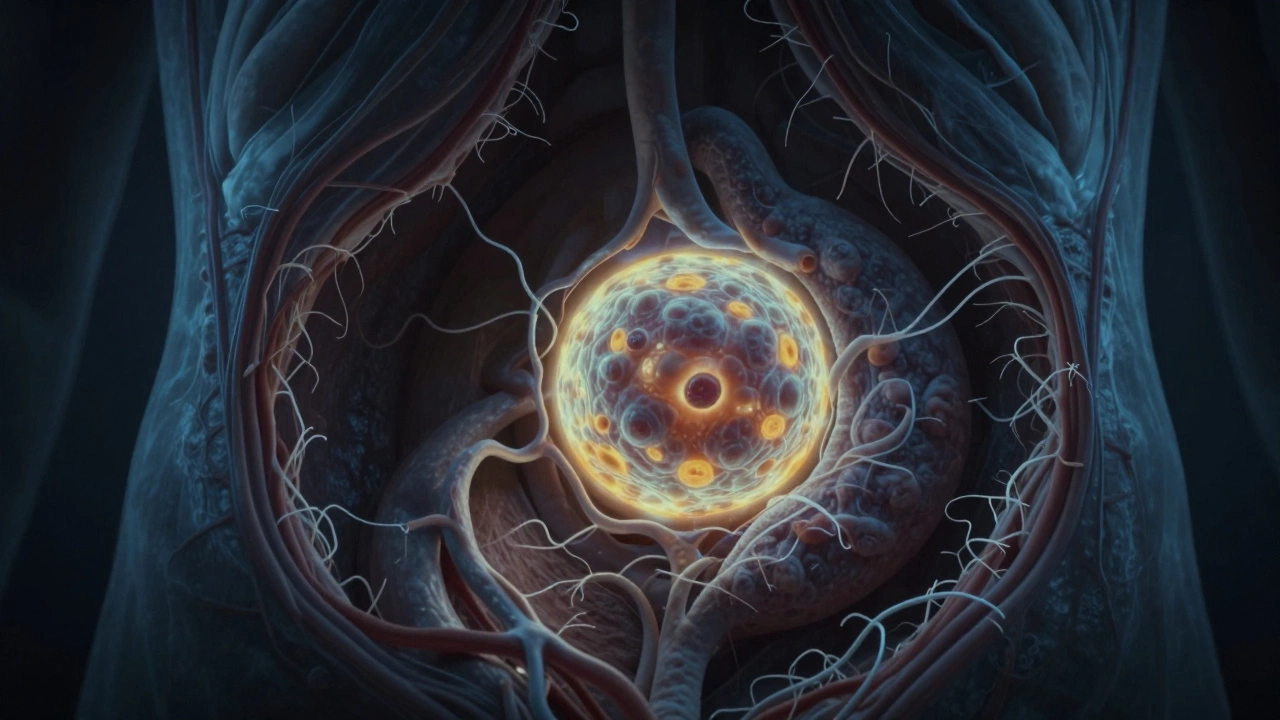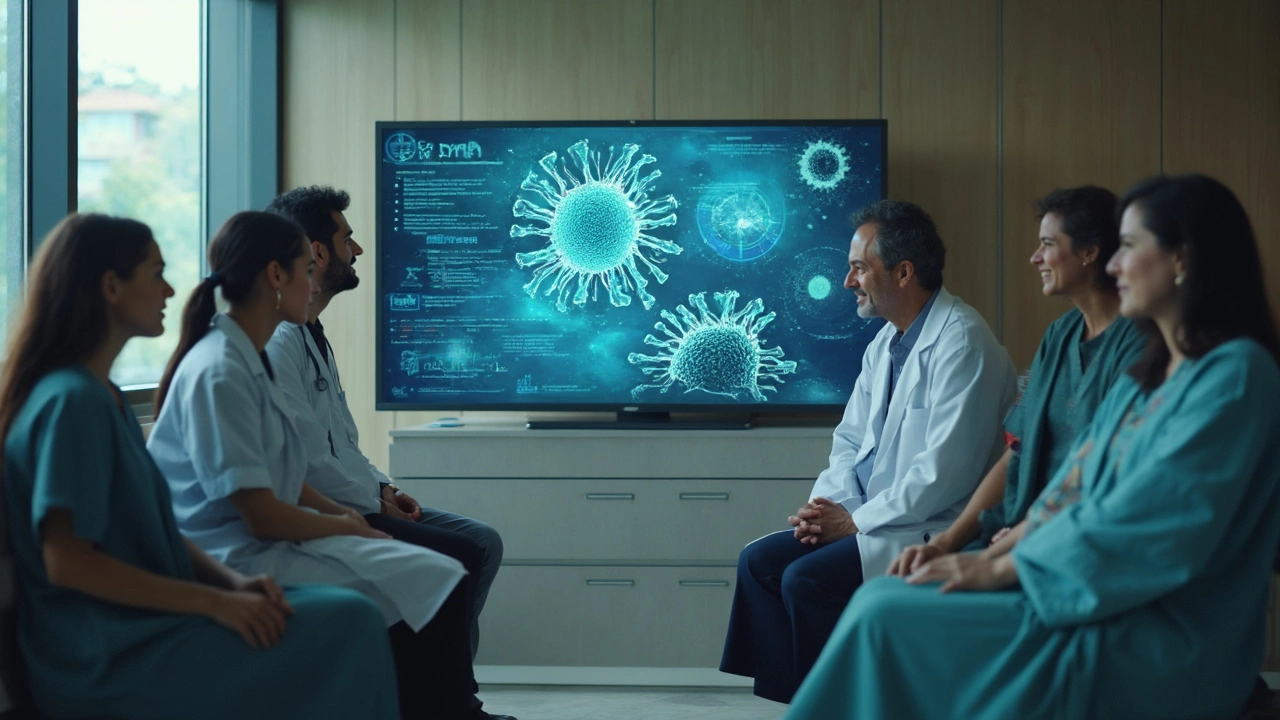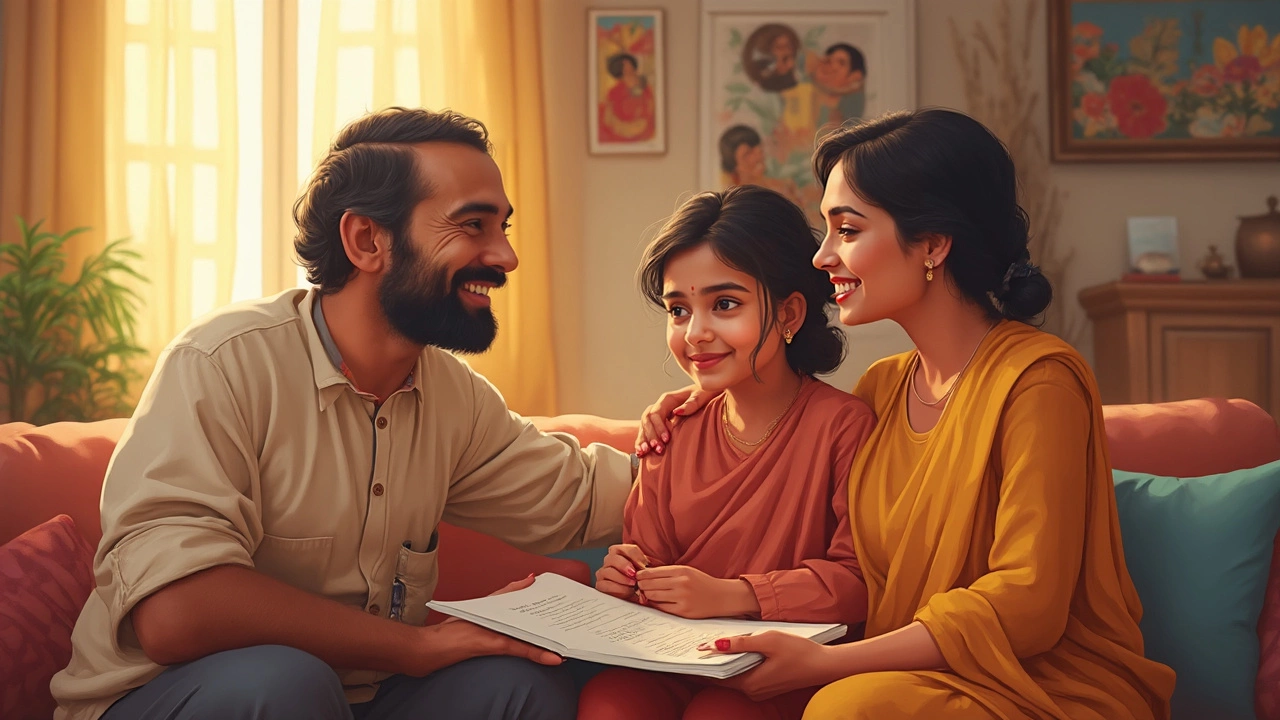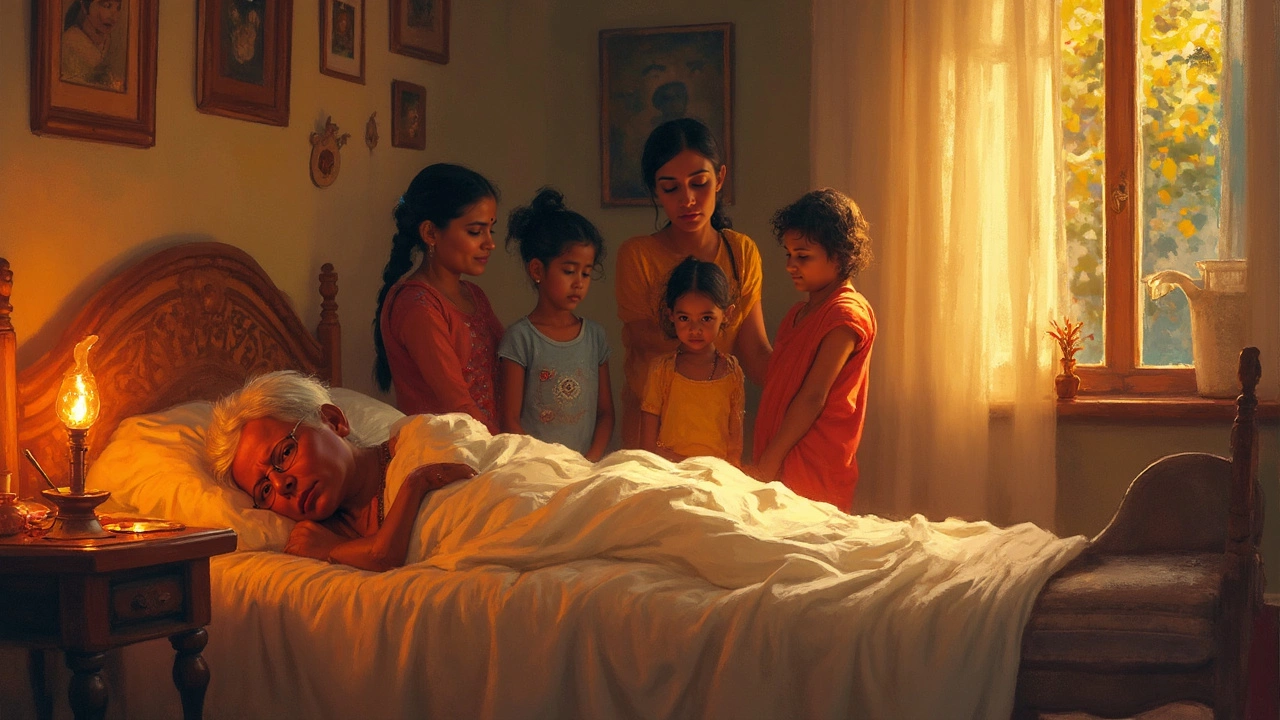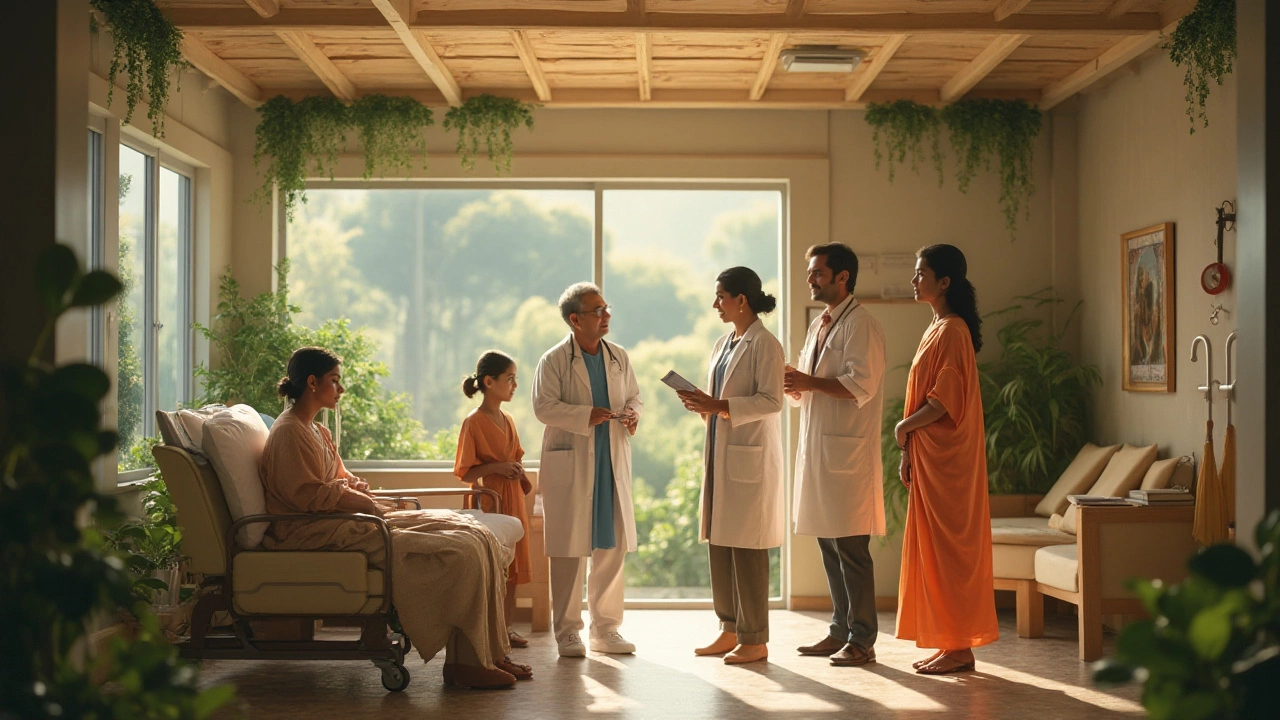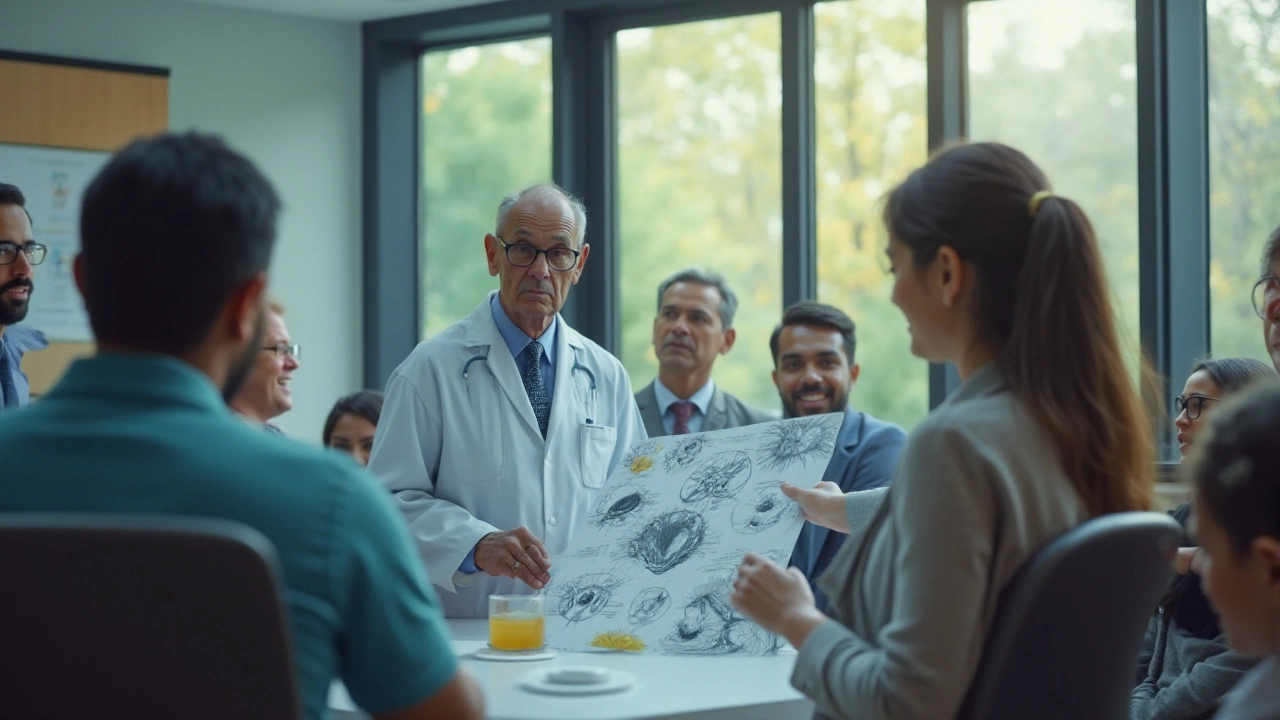Pancreatic cancer is the most feared cancer due to its silent progression, low survival rates, and lack of early detection methods. Learn why it's so deadly and what you can do to reduce your risk.
Read MoreCancer Treatment Options in India – What You Need to Know
If you or a loved one have just heard the word "cancer," the first reaction is often shock and a flood of questions. Where do I start? Which treatment works best? In India, you have a mix of world‑class hospitals, affordable generic medicines, and even some traditional approaches. This guide breaks down the main options, what to expect, and how to pick the right path for you.
Main Types of Cancer Treatment
Most Indian oncologists use the same three pillars you see worldwide: surgery, chemotherapy, and radiation. Surgery removes the tumor when it’s still localized. Modern Indian hospitals have minimally invasive techniques that cut down hospital stay and pain. Chemotherapy uses drugs to kill fast‑growing cells; Indian pharma companies produce high‑quality generics at a fraction of the price you’d pay abroad. Radiation therapy targets the tumor with precise beams, and many centers now offer advanced options like IMRT and proton therapy.
Beyond these, you’ll hear about targeted therapy and immunotherapy. Targeted drugs zero in on specific genetic changes in the cancer cells, while immunotherapy helps your own immune system recognize and attack the tumor. Both are available in top Indian cancer institutes, though they can be costlier than standard chemo.
Some patients also explore Ayurvedic or Homeopathic support to manage side effects. While these aren’t cures, herbs like Ashwagandha or turmeric can help with fatigue and inflammation when used under a qualified practitioner’s guidance.
Choosing the Right Care in India
First, get a proper diagnosis. Early detection makes a huge difference, and India now has widespread screening programs for breast, cervical, and oral cancers. If you suspect something, book a biopsy fast – the sooner you know, the more options you have.
Next, compare hospitals. Look for accreditation (like NABH), success rates for the specific cancer type, and patient reviews. Public hospitals such as AIIMS and government cancer centers offer low‑cost treatment, while private chains like Apollo, Fortis, and Max provide high‑tech facilities and shorter wait times.
Talk to your oncologist about a multimodal plan – often a combination of surgery, chemo, and radiation works best. Ask about the total cost, possible side‑effects, and the timeline for each phase. Many centers now have financial counselors who can help you navigate insurance, government schemes, or payment plans.
Don’t forget the after‑care. Rehabilitation, nutrition counseling, and mental health support are essential for a smooth recovery. Indian cancer centers increasingly have dedicated survivorship programs that guide you on diet, exercise, and follow‑up scans.
Finally, trust your gut. If a doctor’s explanation feels rushed or you’re uncomfortable with the proposed plan, seek a second opinion. The right treatment is the one that fits your medical needs, budget, and lifestyle.
Getting through cancer treatment is tough, but with clear information and the right team, you can make confident choices. Use this guide as a starting point, ask lots of questions, and remember that many people in India are beating cancer every day – you can too.
A lot of people wonder if the body can bounce back after chemo, or if some damage is permanent. This article breaks down what really happens inside you after treatment ends, which changes can heal on their own, and which ones might stick around. You'll also find tips for making recovery smoother and signs to watch for if things don’t feel quite right. This isn’t just medical jargon, but practical info from real experiences. Read on if you or someone close to you has questions about life after chemo.
Read MoreSome cancers are tougher than others, but a few stand out as easier to fight—and thyroid cancer leads the pack. This article breaks down why certain cancers respond better to treatment, what sets them apart, and what practical steps you can take if you or someone you care about is facing a diagnosis. You'll find facts about survival rates, early warning signs, and why routine checks matter. Get clear, direct tips on what affects your chances, and learn the real deal about treatment options for the most beatable cancers.
Read MoreSome cancers still have no cure, even with the latest treatments. This article breaks down why certain cancers remain deadly and what that actually means for people diagnosed with them. You'll learn about the types of cancer still considered incurable, what current treatments can do, and where hope and research are heading. Plus, get practical advice for navigating tough news and making decisions. Think of it as a straight-talking guide for a topic that’s as serious as it gets.
Read MoreStage 4 cancer sounds like the end of the road, but for some people, it hasn't been. This article digs into who has survived, why outcomes can be so different, and what treatments actually made a difference. You'll find honest examples, treatment tips, and straight answers about whether recovery is possible. Plus, there are some practical tips for anyone who wants to take action now. It's all about cutting through hype and getting real about what's possible.
Read MoreFacing a cancer diagnosis often leads individuals to question their life expectancy. The answer isn't one-size-fits-all, as it depends on numerous factors including the cancer type, stage, and treatment options. Modern medicine continues to improve survival rates, offering hope and longer life spans. This article delves into the intricacies of living with cancer, exploring survival possibilities and the impact of early detection.
Read MoreRecognizing the signs of a body shutting down due to cancer can be both heartbreaking and crucial for those involved in caregiving or dealing with the illness directly. This article explores common physical and emotional symptoms in such situations, providing practical insights for timely intervention. Readers will learn about changes in sleep, appetite, and mental clarity, alongside guidance on finding the right palliative care options. Understanding these signs allows for improved comfort and care planning at the end stage.
Read MoreStage 3 and stage 4 are both advanced stages of cancer, but they differ in the extent to which the cancer has spread and the treatment options available. Stage 3 cancer indicates a larger tumor or more extensive lymph node involvement. Stage 4 cancer is marked by the spread of cancer cells to distant parts of the body. Understanding these differences is crucial for choosing the right treatment plan and predicting outcomes.
Read MoreSome cancers present grim survival prospects, often due to late detection and aggressive progression. Knowing which cancers have lower survival rates can help in understanding their nature and challenges faced in treatment. This article discusses various cancers known for low survival rates, reasons behind these statistics, and current advancements in treatment. It aims to raise awareness and offer useful insights for individuals seeking knowledge and support in cancer diagnosis and management.
Read More